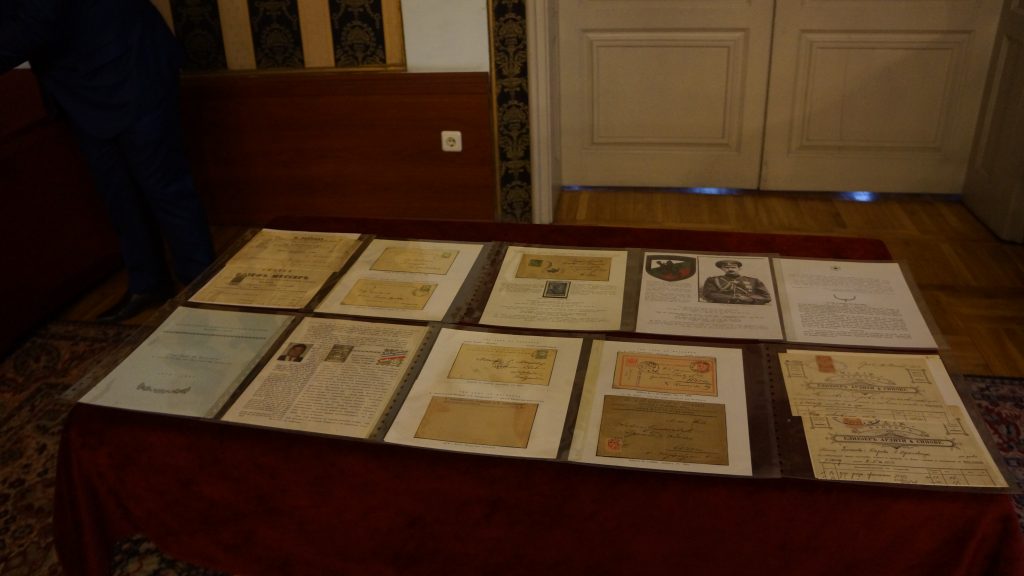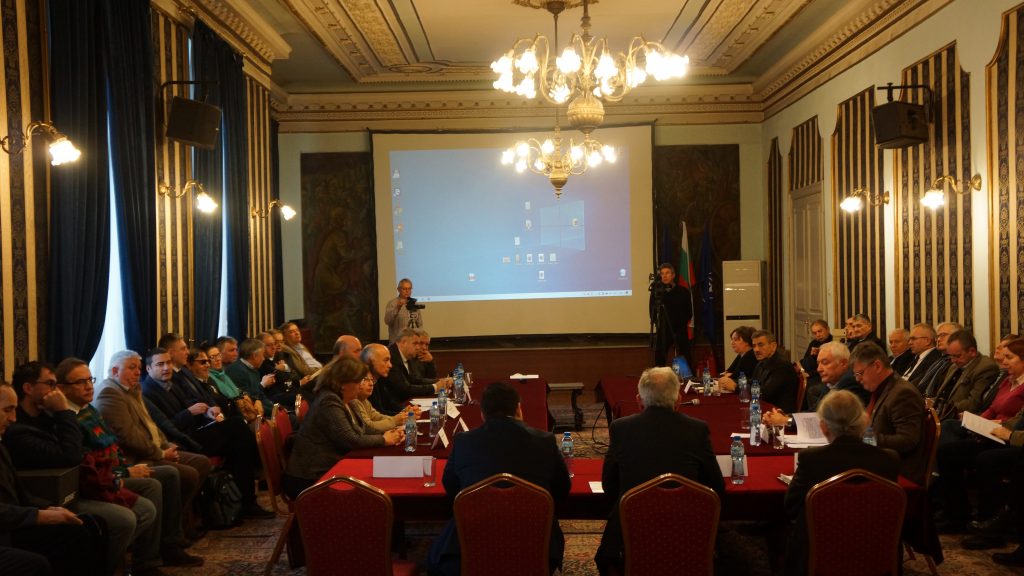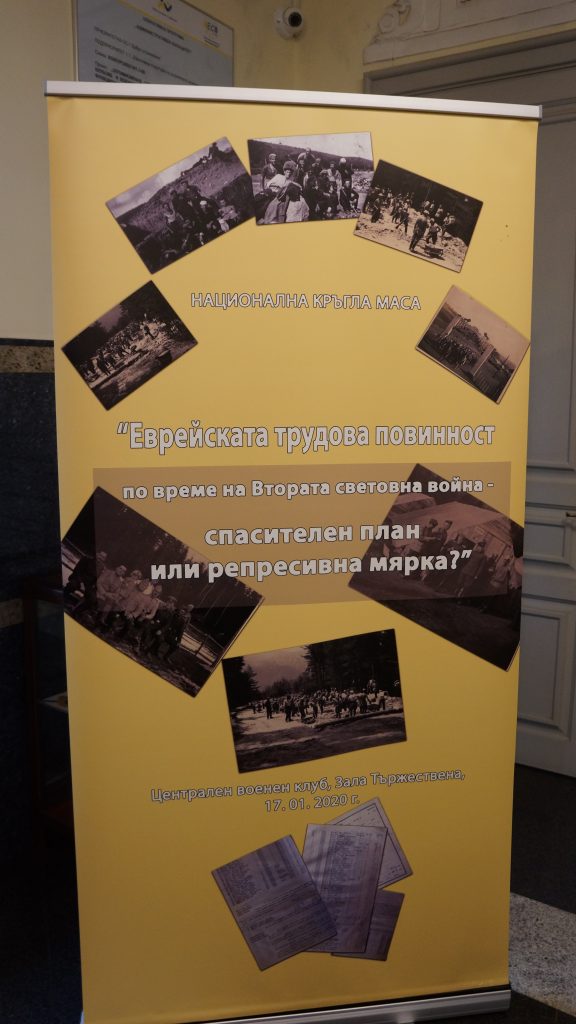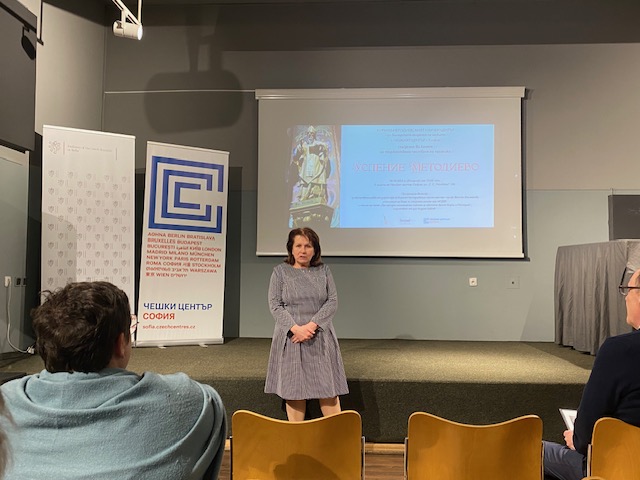 On 17 January 2020, a scientific round table was held at the Central Military Club organized by the Institute for Historical Studies of the Bulgarian Academy of Sciences and the Independent Historical Society on “Jewish labor service during World War II – rescue plan or repressive measure”. The round table was attended by the Deputy Minister of Education and Science Petar Nikolov, the Deputy Minister of Culture Rumen Dimitrov, the Member of Parliament Assoc. Prof. Milen Mihov, the Vice-President of BAS Prof. Vassil Nikolov, the Director of the Office of the American Jewish Committee in Bulgaria, representatives of the organization Shalom, the Bulgarian-Jewish Research Institute, the Archives State Agency and other public and scientific organizations.
On 17 January 2020, a scientific round table was held at the Central Military Club organized by the Institute for Historical Studies of the Bulgarian Academy of Sciences and the Independent Historical Society on “Jewish labor service during World War II – rescue plan or repressive measure”. The round table was attended by the Deputy Minister of Education and Science Petar Nikolov, the Deputy Minister of Culture Rumen Dimitrov, the Member of Parliament Assoc. Prof. Milen Mihov, the Vice-President of BAS Prof. Vassil Nikolov, the Director of the Office of the American Jewish Committee in Bulgaria, representatives of the organization Shalom, the Bulgarian-Jewish Research Institute, the Archives State Agency and other public and scientific organizations.
The results of a scientific project of the Institute for Historical Studies and the Independent Historical Society, in which scientists from “St. Cyril and St. Methodius” University of Veliko Turnovo, “Georgi S. Rakovski” National Defence College and Archives State Agency also participated, were presented at the Round Table. On the basis of unpublished and unused documents up to now, from Bulgarian and foreign archives, the thesis was developed that the Jewish labour service was designed entirely under the Law of Armed Forces of 1940, and it regulated the living and working conditions which applied to all who were mobilized in the labour service system.
In 1944, the total number of those working in the Labor Corps was 90 000 of which young Jews were just over 12 000 or about 15% of the population. This system of engaging them was practically used in a systematic and purposeful way by the official Bulgarian authorities as the main argument and tool for their stay in the country and their salvation from deportation while they continued to enjoy all the rights and obligations of other Bulgarian citizens working in this kind of army. Without underestimating the manifestations of anti-Semitism of individuals engaged in a system of labour service, it should be noted that the end result was saving the lives of thousands of Bulgarian Jews who had repeatedly demonstrated with their deeds their great fondness for the Bulgarian state and nation. Together with them, thousands of Jews from other countries and those from the German-occupied territories in the Aegean Region and Macedonia were also saved. Their salvation has a unique character for history and is an example to other nations and countries in Europe.








